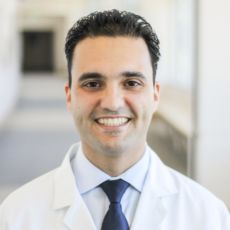Arthroscopy

Overview
What is Arthroscopy?
Arthroscopy is a minimally invasive procedure orthopedic surgeons to view, diagnose and treat conditions inside a joint. It is performed using an arthroscope inserted into a tiny incision and specialized surgical tools. The surgeon views the area to be treated on a monitor that magnifies and illuminates the interior of the joint. Arthroscopy is commonly used to treat conditions of the knee.
Why
Why Arthroscopy?
Arthroscopy has become the treatment of choice for meniscal tears of the knee joint.
- Removal of torn lining in the knee
- Loose bone fragments
Because arthroscopy is minimally invasive, it has a lower risk of complications, shorter recovery time and less pain and bleeding. Arthoscopy is performed on an outpatient basis, meaning patients go home the same day.

Risks
Potential Risks and Complications
Our surgical team uses the latest safety and infection control protocols. Possible complications include:
- Tissue or nerve damage
- Infection
- Blood clots

Prep
Preparing for Arthroscopy
Prior to your procedure, your orthopedist may advise you to stop taking certain types of medications or supplements that increase the risk of bleeding. You may also need to avoid food or beverages the night before your procedure. Be sure to arrange for a ride home after your surgery. Your care team may have additional instructions for you prior to surgery.

What to Expect
What to Expect
Your care team includes your orthopedic surgeon, anesthesiologists, nurses and technicians.
Your arthroscopy will be performed under local, regional, or anesthesia and usually takes under one hour. After your knee joint area has been prepped, an incision will be made and your surgeon will insert an arthroscope. Using tiny tools inserted into the arthroscope, your surgeon will visualize and remove the torn meniscus. Your incisions will be closed and you will be moved to recovery to rest for a few hours before going home.
Upon discharge, you will be given a date for a follow-up appointment, usually a week after the surgery. You may be prescribed pain medications. If indicated, you will also be prescribed a course of physical therapy to assist in your recovery.
Specialists






